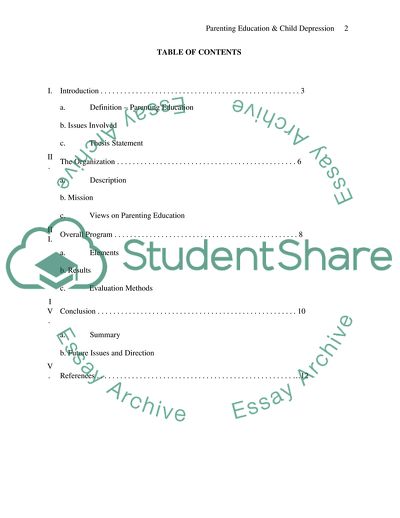Cite this document
(Parent-Child Relations Term Paper Example | Topics and Well Written Essays - 2822 words, n.d.)
Parent-Child Relations Term Paper Example | Topics and Well Written Essays - 2822 words. Retrieved from https://studentshare.org/education/1708449-parenting-education-and-child-depression
Parent-Child Relations Term Paper Example | Topics and Well Written Essays - 2822 words. Retrieved from https://studentshare.org/education/1708449-parenting-education-and-child-depression
(Parent-Child Relations Term Paper Example | Topics and Well Written Essays - 2822 Words)
Parent-Child Relations Term Paper Example | Topics and Well Written Essays - 2822 Words. https://studentshare.org/education/1708449-parenting-education-and-child-depression.
Parent-Child Relations Term Paper Example | Topics and Well Written Essays - 2822 Words. https://studentshare.org/education/1708449-parenting-education-and-child-depression.
“Parent-Child Relations Term Paper Example | Topics and Well Written Essays - 2822 Words”, n.d. https://studentshare.org/education/1708449-parenting-education-and-child-depression.


